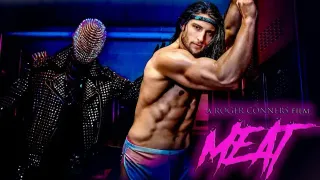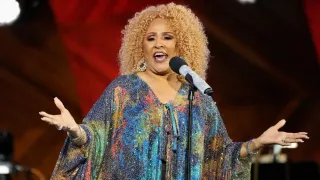October 7, 2024
'Fire Island' Star Zane Phillips Slayed on the NYC Stage
Kilian Melloy READ TIME: 2 MIN.
He inspired lust on the big screen in "Fire Island," kept the laughter coming with his TV turn on the Kim Cattrall-starring queer sitcom "Glamorous," and kept the queer summer sizzling in the video for Bronze Avery's single, "Heatwave." Keeping his summer busy, out actor Zane Phillips jumped headlong into a play in New York City, despite a severely compressed production timeframe.
"The show, 'Pretty Perfect Lives,' opened at the Flea's Sam Theater in New York City on Aug. 17 for a limited engagement ending on Sept. 8," People Magazine relayed. "Described as a 'speculative-fiction play,' the powerful work follows an influencer couple, Tucker and Tiffany, who welcome a third person into their relationship as they navigate a virtual reality program."
The play "had a quick turnaround following his casting" as the character Tucker, and Phillips told the outlet all about it.
"When you're a lifestyle influencer, especially when you're in a couple, you are basically the platonic ideal of what a heterosexual couple should look like," Phillips explained. "And seeing that getting broken down and broken down and broken down and ripped apart a little bit. Yeah, I really liked the journey that he went through."
"But despite the actor's theater background, the speedy production process came as a surprise," People noted. "He was the first actor to be cast in the production at the end of May and then rehearsals picked up at the beginning of August – mere weeks before the curtain went up."
"When I was in theater in New York, I was doing musicals and those tend to require a little bit more runway," Phillips told the magazine. "Especially if you're planning workshops and out-of-town tryouts and all those things."
But it was a different story for "Pretty Perfect Lives"; the thirty-year-old hunk told People that the producers "[sped] this bad boy along."
Summer may be over but you can keep warm to some of the sexy pics Phillips has posted at his Instagram. Check them out below.






